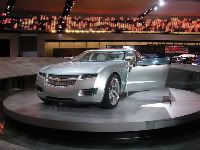Ending Subsidies for Nuclear Power
We speak often about ending the subsidies for Big Oil, in an effort to create a level playing field for renewable energy, and simply to stop transferring wealth from the U.S. tax-payer to the captains of the most profitable industry on Earth. And the discussion is heating up even further, now that America is $15 trillion in debt.
Here’s an article that points out that the federal government has spent more than $95 billion (in 2011 dollars) on nuclear energy research and development (R&D). That is more than four times the amount spent on solar, wind, geothermal, biomass, biofuels, and hydropower combined.
Its authors note:
Many in Congress talk of getting big government off the back of private industry. Here’s an industry we’d like to get off the backs of the taxpayers. …..One thing we strongly agree on is the need to end wasteful subsidies that prop up the nuclear industry. After 60 years, this industry should not require continued and massive corporate welfare. It is time for the nuclear power industry to stand on its own two feet.










